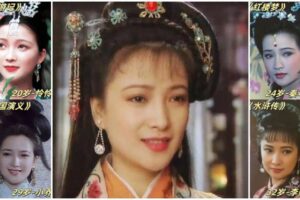
SINGAPORE – One of Singapore’s oldest non-government groups, the Nature Society Singapore (NSS), is undergoing restructuring to improve itself and boost nature conservation in the region, The Straits Times has learnt.
A key part of the restructuring will see the 1,000-member NSS evolving from being mainly a volunteer-run organisation to one that is led by a secretariat comprising full-time staff.
The society’s executive director Huang Ningxin, 37, who took on the newly created post in January, said the number of staff will increase from six in 2024 to nine by August.
With the restructuring, NSS plans to develop new programmes to generate revenue in an increasingly crowded conservation space.
The society also hopes to do more for nature in the South-east Asian region, even though it will continue to have a focus on conservation issues here.
One programme in the pipeline, for example, involves eco-journeys designed by NSS to teach participants about nature conservation.
This will start in September with the launch of the society’s first eco-trip in Bintan for Singapore’s teachers, which it hopes will support the local community and train educators in charge of sustainability efforts. These trips will become a source of revenue for the society.
Founded as the Singapore branch of the Malayan Nature Society in 1954, NSS has over the years been a voice for nature in Singapore, successfully lobbying against the destruction of key nature areas like the Sungei Buloh Wetland Reserve and Kranji Marshes.
But the charity now faces a competitive environmental non-profit space in Singapore amid mounting climate and biodiversity crises afflicting the Earth. More than 60 per cent of its funding in 2024 came from donations. Other funding sources include grants and membership fees.
Giving to environmental causes accounted for
1.78 per cent of grants
disbursed by the Community Foundation of Singapore – which pools and facilitates donations here – between April 2024 and March 2025.
Ms Huang said raising funds is a priority for the NSS management team this year.
During the Covid-19 pandemic, the Tote Board had rolled out a scheme that matched charitable donations made to charities.
But such schemes will not continue indefinitely, with the Government slated to cut its matching support from a dollar to 50 cents in 2026, said Ms Huang.
Nature Society Singapore executive director Huang Ningxin, 37, left her job as a biology teacher to join the society full-time.
PHOTO: NATURE SOCIETY SINGAPORE
Among the first fruits of the new secretariat was NSS’ first fund-raising gala dinner in 2024, which raised $338,135.
With the restructuring, NSS also hopes to improve coordination among its various interest groups, where members interested in specific issues – like birds, marine biodiversity or conservation issues – organise their own events.
This includes activities like a bird-watching race, or engagements for environmental studies.
The executive director will oversee the society’s efforts to ensure that these work effectively and can be executed at a greater scale, while taking direction from a volunteer-run executive committee (exco).
Part of the secretariat’s job will be to function as a centralised repository of knowledge, which is currently scattered among individual volunteers, said Ms Huang.
Employing staff to coordinate the society’s efforts means that good causes do not end with their champions, said volunteer Albert Liu, who joined the society’s exco in 2018.
The 41-year-old said: “Members sign up for activities because they like bird watching and clean-ups, not fund raising or logistics. The staff can complement their passions by taking over these functions.”
Past and present leaders said shifting from a volunteer-led group to a more professional management team will address longstanding issues for the organisation.
For Mr Leong Kwok Peng, who heads the NSS exco as president, the transformation that began in 2023 will help the group keep up with the scale of conservation issues and activities that have grown too much for volunteers to stay on top of on an ad-hoc basis.
“Volunteers can only afford time when they’re not working, so we decided we should have full-time staff, who can give their full attention to handling these matters consistently,” said the 68-year-old retired outdoor educator.
Mr Leong has been a volunteer with the society since the mid-1980s. As part of the society, the avid scuba diver once spent nearly every Sunday between 1993 and 1995 relocating corals from Jurong to Sentosa to save marine life there from being smothered by reclamation plans for Jurong Island.
Between 1993 and 1995, Nature Society Singapore relocated corals to prevent them from being smothered by the Jurong Island reclamation.
PHOTO: LEONG KWOK PENG/FACEBOOK
Dr Shawn Lum, a former president of NSS for 15 years from 2008 to 2023, said creating professional roles in NSS will help retain promising young conservationists, who often find it difficult to remain active volunteers with civil society groups after taking up full-time jobs.
The botanist, now a member of the society’s exco, told ST that having a secretariat manage the society full time paves the way for the realisation of a dream he had for NSS to contribute more to regional conservation.
Referring to the eco-trips being planned, Dr Lum, 62, said: “If even a small fraction of Singapore-based travellers were to direct their time and funds to nature-positive activities, Singapore could bring many benefits to the local communities at the front lines of nature conservation efforts in the region and beyond.”
Said Mr Liu: “Putting a glass dome over Singapore is not enough to protect wildlife, which are not constrained by national borders.
“As a partner of the global nature community, we can help boost conservation in the region.”
Corals off Jurong Island being relocated by Nature Society Singapore.
PHOTO: LEONG KWOK PENG/FACEBOOK
Ms Huang said she also hopes to tackle the issue of the society’s declining membership.
Its roughly 1,000-strong membership is about half the strength of the society during its peak in the late 1980s.
“We are trying to engage young people to learn more about Nature Society Singapore and have them come on board with us,” she said. “We are definitely very open to working with (young people who have started their own groups)… because competing against each other does not benefit nature conservation.”
A former biology teacher of 10 years, Ms Huang said joining the society full time has been rewarding for her.
She had learnt about NSS in 2017 from Dr Lum, who was her lecturer when she was pursuing a master’s in zoology at Nanyang Technological University.
She added: “I see Nature Society Singapore as a treasure trove of knowledge, wisdom and perspectives that cannot be found in textbooks.
“So there is a lot of value in this human part of conservation that ought to be passed down.”





